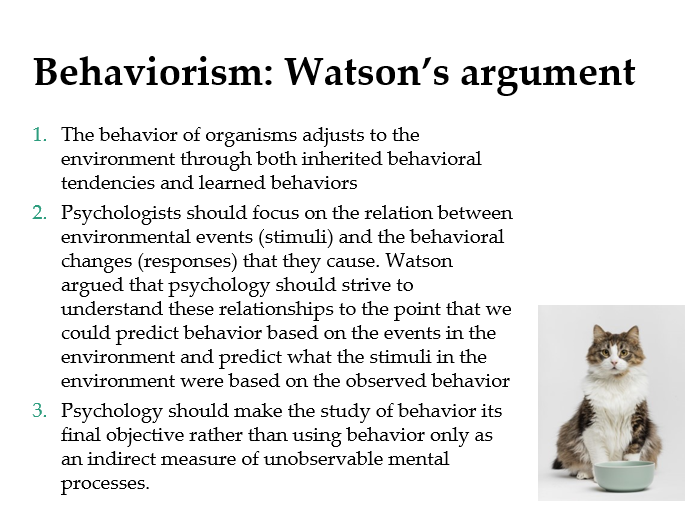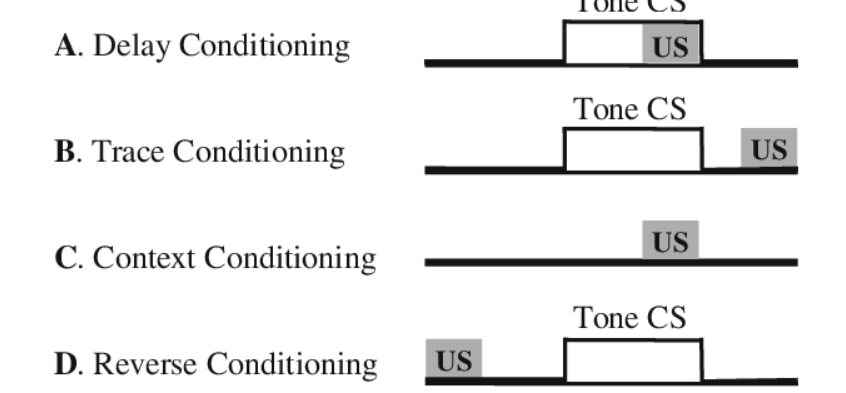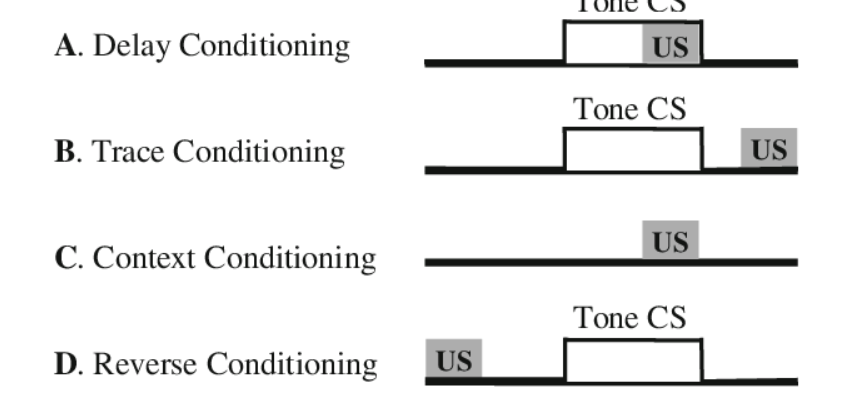Psych. Ch. 6 (Learning and Behavior)
1/41
There's no tags or description
Looks like no tags are added yet.
Name | Mastery | Learn | Test | Matching | Spaced |
|---|
No study sessions yet.
42 Terms
Backward Conditioning
US presented before NS
Behavior Analysis
Explore laws/principles govern behavior/behavior tech development
Behavior Analysts focus on
Behavior Analysis POV
Behavior Trap
Two people’s unwanted behavior maintained by both positive/neg. reinforcement.
Behaviorism
Observe behavior → find out how environment influences behavior (John Watson)
Classical Conditioning
Inherited behavior triggered by environ. event w/new stimulus
Conditioned Response (CR)
Caused by CS. (Dogs salivate after training)
Conditioned Stimulus (CS)
Stimulus that now causes reaction
Contiguity
Close together in time/space
Contingency
One event predicts another event
Delayed Conditioning
NS presented before US while NS still present
Differential Reinforcement
Problem behavior extinct w/ pos. reinforcement
Differential Reinforcement of Incompatible (DRI)
Behavior CAN’T happen same time as problem behavior
Differential Reinforcement of Other (DRO)
Organism reinforcement when NOT doing problem behavior
Discrimination
Behavior happens w/stimuli during training/ NOT w/o stimuli
Differential Reinforcement of Alternative (DRA)
Behavior reinforcement produce same as problem behavior
Discriminative Stimuli
Before behavior/gives info about consequences
Generalization
CR seen w/stimuli NOT present during training
Introspection
Ask people abt internal experiences
Negative Punisher
Remove event → behavior that removed event happening again DECREASES
Negative Reinforcer (NR)
Remove Event → behavior that removed event happening again INCREASES
Neutral Stimulus (NS)
Stimulus causes no reaction (Black liquid to dogs → no salvation)
Operant Conditioning
Behavior/environmental changes relationship
Positive Reinforcer
Event causes INCREASE of behavior happening again
Positive Punisher
Behavior produced event/causes DECREASE of behavior happening again
Reflex
Automatic behavioral response
Respondent Behavior
Inherited behavior directly caused by specific stimulus
Respondent Extinction
Dogs stop salivating to bell due no prediction of meat display.
Resurgence
Old behavior shows up again after new behavior extinction
Sailience
How noticeable NS is to organism
Schedules of Reinforcement (3 kinds)
Continuous/Extinction/Intermittent
Simultaneous Conditioning
US and CS presented same time
Spontaneous Recovery
Reappearance of CS after time passage since last extinction trial
Learning
Organism behavior changes due environment changes produced by said behavior. (Behavior → Environment change → Behavior Change)
ABC’s of behavior
Antecedents/Behavior/Consequences
Antecedents
Stimuli/events before behavior
Behavior
Organism’s private/public actions
Consequences
Environment changes occur AFTER behavior
Watson’s 3 main points
Inherited/learned behaviors help adjust to environment
Stimuli/Responses relationship
Study of Behavior FINAL objective instead of indirect measure

Respondent Behavior
Inherited behavior directly caused by stimulus (ex: pupils constrict due bright light)

Trace Conditioning
NS presented/removed before US. NO OVERLAP

Intermittent Reinforcement Schedules include
Fixed ratio/interval. Variable ratio/interval